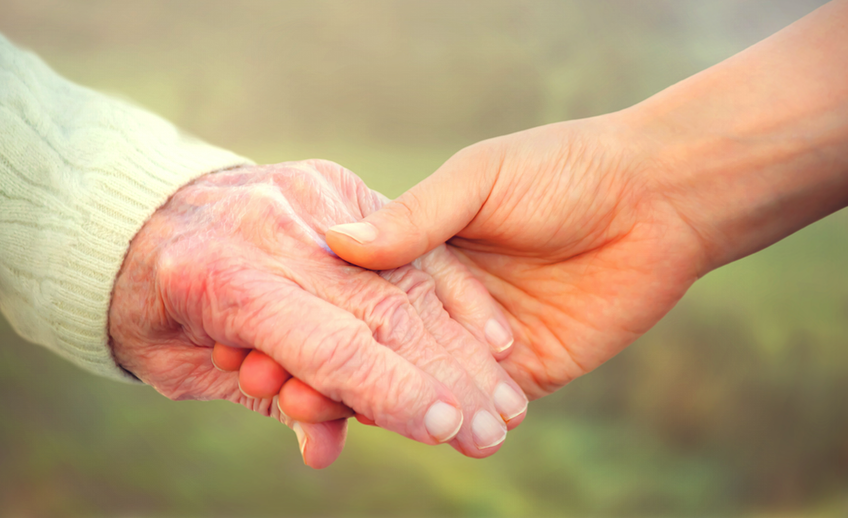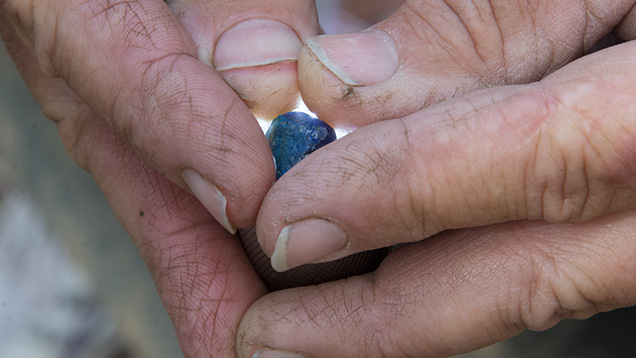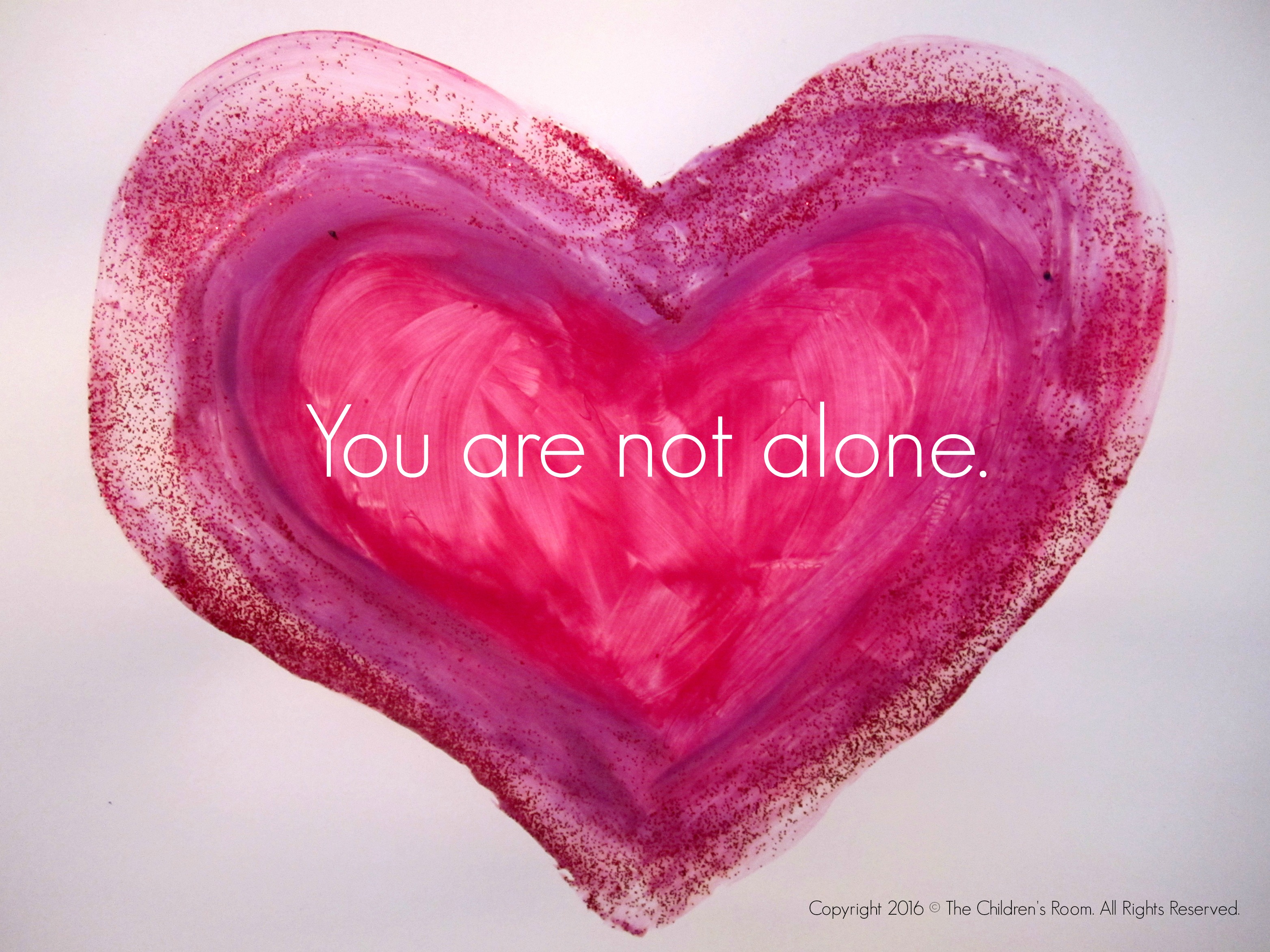 “I’m sorry. Someday I’ll be able to talk about her without breaking up,” the man assured my husband and me. Sitting across from him at a party, we were blessed to hear stories about his beloved wife who had died two years before. Tales of dances and car rides during their courtship, narratives of their years raising children together, and accounts of her cancer journey and final days – one by one he took these precious gems from the treasure chest of his memory and presented them to us. Woven throughout these stories were apologies and promises: “I’m sorry for bringing her up again,” “I won’t always cry when I think of her.”
“I’m sorry. Someday I’ll be able to talk about her without breaking up,” the man assured my husband and me. Sitting across from him at a party, we were blessed to hear stories about his beloved wife who had died two years before. Tales of dances and car rides during their courtship, narratives of their years raising children together, and accounts of her cancer journey and final days – one by one he took these precious gems from the treasure chest of his memory and presented them to us. Woven throughout these stories were apologies and promises: “I’m sorry for bringing her up again,” “I won’t always cry when I think of her.”
Each time he interrupted his tales with one of these types of statements, my husband and I rushed to assure him that he did not need to apologize or explain. We welcomed his stories.
Sharing these stories with us was something he seemed to need to do; yet he felt bad about doing it. He judged himself and assumed that we would not be interested in listening. The truth is that both my husband and I felt honored to spend time with this gentleman and his tales. Through them, we felt like we were introduced to a lovely woman whom we will never meet, we were reminded of some valuable life lessons, and we felt enfolded in a love that surpasses death.
Each of those gifts, however, was a bonus of sorts for us, for we were not attending to these stories for our sake at all. We listened as our way to offer grief support.

In contemporary Western culture, it often seems that we have deemed the sole purpose of storytelling to be entertainment. If something shared with us does not grab our interest, we disengage. We get frustrated to hear stories repeated again and again. We have confused our role as listener with that of audience member.
To be sure, sometimes we do amuse one another with our stories; however, those of us who are bereaved have entirely different needs that can only be fulfilled when others hear to our narratives.
I listen to stories as grief support continually – and not just when I led bereavement support groups. If we pay close attention, we notice that such narratives are being shared everywhere in the midst of mourning:
A young mother who longs to talk about her toddler’s death but whose family members tell her she needs to “move on”.
The man whose parent, in the final stages of Alzheimer’s, no longer recognizes him.
A minister whose spiritual community fell apart, leaving her without a family of choice and without anyone to listen as she navigates this rocky terrain of grief.
The bereaved and their stories are everywhere.

Indeed, the other day, my daughter and I rushed into the grocery store to pick up “just one item”. Grabbing a loaf of bread in the bakery, we noticed an elderly woman with a motorized shopping cart; she was struggling to lift something off a shelf. When we offered to help, she replied, “Yes, please,” then paused and continued, “My husband always used to come shopping with me.” Glancing at my daughter, I sent her the non-verbal cues she has come to recognize as “Settle in; we are going to be here awhile.” And I asked the woman to tell me about her husband. She shared stories of their life together — of burnt toast and his long-dead mother, of his heritage and their home — not for my sake. I never even learned her name and likely will not see her again. She told these stories because she is grieving. And telling stories is often what grieving people do.
Bereavement care specialist Alan Wolfelt tells us, “We must say hello before we can say goodbye.” (see https://www.centerforloss.com/ for more information on Wolfelt’s Organization, Center for Loss and Life Transition, and his extensive bibliography). Our culture, he explains, rushes us through the grieving process; we push ourselves and others to end relationships when a death occurs. What we really need at that point, though, is to continue the relationship; we need to reassure ourselves that it actually happened, to explore it, and to honor it.

People across the planet throughout time have known this. They have told stories of their dead loved ones for the remainder of their days. In contrast, in the past few decades many Westerners have been met with judgment and disregard when they have attempted to do the same. Even some therapists often urge clients to complete their narratives as a way to “move on” with their lives.
Fortunately, others, like Wolfelt, emphasize the indispensable role of storytelling in grief care.
Two books published last year significantly expand this conversation. Both Patrick O’Malley and Megan Devine were therapists who had treated many bereaved clients. When O’Malley’s infant son died and when Megan’s husband drowned, however, each realized how inadequate that care may have been. Plunged into the blackness of grief, each of these individuals felt entirely unsupported through their field of expertise; therapy failed them both.
 Devine’s It’s Ok That You’re Not Ok: Meeting Grief and Loss in a Culture that Doesn’t Understand and O’Malley’s Getting Grief Right: Finding Your Story of Love in the Sorrow of Loss each use the authors unique grief experiences as narratives through which they critique contemporary constructions of grief. By demonstrating our culture’s tendency to pathologize grief and the resultant injury this can cause, both volumes explore ways we can better support ourselves and one another as we experience the human condition of grief.
Devine’s It’s Ok That You’re Not Ok: Meeting Grief and Loss in a Culture that Doesn’t Understand and O’Malley’s Getting Grief Right: Finding Your Story of Love in the Sorrow of Loss each use the authors unique grief experiences as narratives through which they critique contemporary constructions of grief. By demonstrating our culture’s tendency to pathologize grief and the resultant injury this can cause, both volumes explore ways we can better support ourselves and one another as we experience the human condition of grief.
And they each determine that storytelling is an essential component to this support.
O’Malley notes, “It soon dawned on me that, through their stories, my clients were being liberated from external rules or expectations and thus could grieve in a much more natural way”. Sharing narratives can help us change the way grief itself is experienced as well as the ways it is understood and interpreted.
There are as many reasons for and ways to use stories in grief care as there are individuals who grieve. Some of those that occur often are:
To Make The Loss Real: The man caring for a parent with Alzheimer’s Disease often wonders if he is “making too much of the situation”; his mother, after all, is still alive. When his stories of her failing memory are met with statements like “At least you had many decades with her,” or “It’s fortunate she did not die quickly,” he questions his felt experience of deep loss. Devine advises, “Telling the truth about grief is the only way forward: your loss is exactly as bad as you think it is.”
To Have Our Pain Witnessed: Studies in Neuropsychology prove that from our earliest days we need our experiences to be witnessed with loving presence in order for us to integrate them into our lives in healthy ways. The minister who suffered the loss of an entire spiritual community spent years searching for someone to listen to her story, to have her pain reflected back to her. As Devine notes, “To feel truly comforted by someone, you need to feel heard in your pain. You need the reality of your loss reflected back to you – not diminished, not diluted.”
To Re-Write the Past: Devine share, “Humans are storytelling creatures: it’s why we have cultural mythologies, creation stories, and movies. Telling the story of this loss over and over – it’s like we’re looking for an alternate ending. A loophole. Some way the outcome might have changed. Could still change. Maybe we missed something. If we can only get the story right, none of this would be happening.” The young mother has replayed that day countless times in her mind, hoping for a different outcome – one in which she doesn’t find her son lying on his bed, lifeless.
To Continue the Relationship: The woman in the grocery store was in some way keeping her husband alive by introducing my daughter and me to him through her stories. As O’Malley writes, grief isn’t “getting over loss”; it is “learning to live with it and to use the grief narrative as a way to preserve a bond with the one who died.”
This storytelling can come in forms other than spoken narratives, of course. Some of us will paint images, some will dance our tales, some will sing them to the heavens.

Like the gentleman at the party, we each have treasure chests full of story gems. When we are grieving, most of us need to take those jewels out frequently, to hold them to the light, to turn them around and examine their facets. If you are one who is holding such a gem right now, please find someone whom you trust and share it with them. If you are one who is blessed to be shown such a gem, please witness it and honor it. By doing so, you are not only supporting a bereaved individual; you are also helping to change the course of grief care in our world.

4 comments to “Storytelling as Grief Care”
You can leave a reply or Trackback this post.
Barbara Breslau - August 9, 2018 at 10:42 am
Thank you, Amy,
This is beautiful. I am still telling the story of my son, David, in my support group for people who have lost family members to suicide. We consider ourselves a “tribe” that listens to each other’s stories and gives support when we feel overwhelmed by the grief. This is the anniversary month of David’s death. It will be two years on August 30. I feel more fragile at this time this year than I did last year. David suffered from depression for most of his life. He worked hard to overcome it, reading everything he could find on the subject, going to therapists and psychiatrists for talk therapy and meds. He even tried iwaska at a sanctuary in Peru. And he was better after that, but it didn’t last. Four months before his 50th birthday, David shot himself. I realized this week that his was an act of power. Like a person with painful terminal cancer, he wanted to end the suffering and he didn’t want to be a burden to others. I didn’t mean to go on and on with my story. Buy David is the only one from the 40 or 50 who have passed through my support group that did not kill himself at home or jumping off a bridge. He want to a remote hiking trail, again not wanting to be a burden to anyone.
Amy Agape - August 13, 2018 at 12:42 pm
Barbara, I’m happy you connected with this piece. Grief demands that we tell our stories, again and again and again. And it is sometime so challenging to find people who can truly listen to those stories. I am glad you have support. David sounds like a lovely man. I’m sorry he died. I pray for peace and comfort for all who loved him.
Cindy - August 9, 2018 at 11:05 am
Hi Amy! I wandered into this blog post through a night-time internet meander, and find it so lovely and helpful; relevant to my family this week so I shared it with them. Blessings to you and gracias for your offerings.
Amy Agape - August 13, 2018 at 12:40 pm
Thank you for reading, Cindy. I’m glad you found something of value here. I send you and your family blessings on your journey.